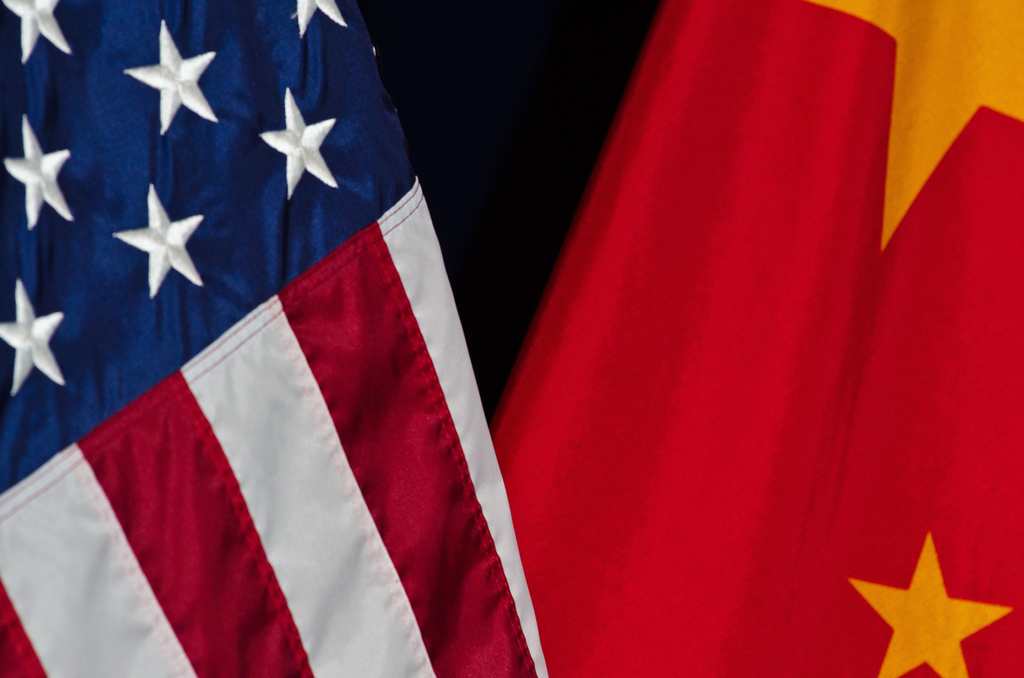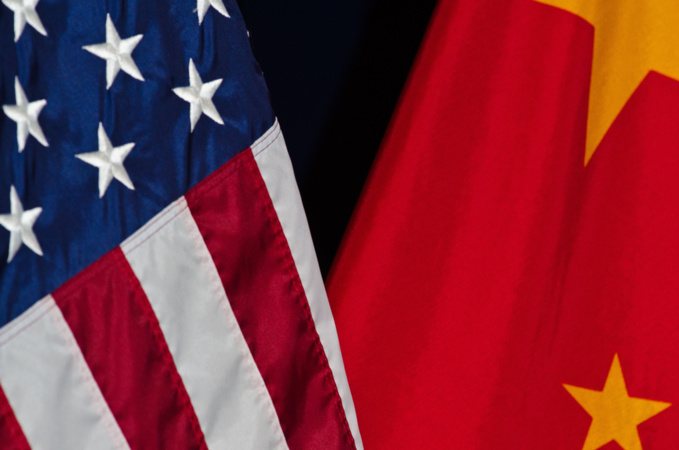This does necessarily mean that a trade war is inevitable, especially since the United States and China have already gone through a number of rough spots in relations since President Donald Trump became president. Nevertheless, Trump is weighing a possibility of imposing restrictions on imports of Chinese steel and aluminum. This step will undoubtedly lead to reciprocal measures from Xi Jinping. And such retaliatory measures will negatively affect the American business. The following companies are risking the most:
1. Hollywood
Cinematography wants to expand access to the Chinese market, where foreign films account for 61% of box office revenue as of the first half of 2017. China permits import of about three dozen foreign films with divided income, when film studios receive only 25%. In turn, Hollywood wants to increase the volume of imports and get a higher share of revenues.
2. Boeing
It is expected that shipments to China will account for 30% of all shipments of the best-selling Boeing 737 models, the company says. In addition, Boeing shipments to China ensure about 150 thousand jobs in the US.
China will need 6,810 aircraft with a total cost of more than $ 1 trillion before 2035, according to Boeing. In addition, the company plans to open its first foreign assembly center for 737 aircraft in China in 2018.
3. Westinghouse
The company working in the field of nuclear energy has many plans to work in China. So, already next year it plans to put into operation its new reactor of a new generation.
Success in China is important for Westinghouse Electric Co., which filed for bankruptcy in March this year. If the project, which has been postponed for a long time, is eventually implemented in China, then the probability that other countries are interested in technologies of Westinghouse will increase.
4. Starbucks
Chinese consumers, angered with Trump, can seriously undermine work of one of the most popular and recognizable American brands. The trade disputes can be extremely unfortunate for Starbucks Corp. Moreover, this year the company plans to open a tasting room in Shanghai. The company’s head Howard Schultz notes that China presents huge opportunities for the company.
5. Tesla
The trade war can seriously complicate Tesla Inc.’s attempts to strengthen its position in China. The company is currently working with the Shanghai authorities, studying local industrial production. This could reduce cost of Tesla vehicles in the global electric vehicle market. By the end of the year, Tesla expects to submit more detailed plans for doing business in China.
6. Apple
Apple Inc., which usually releases new iPhone models in September, expects that the new iPhone 8 will significantly increase its share in the Chinese market. China accounted for 25.3% of the company’s operating income in 2017, but Apple's profits in China have been declining for the fifth consecutive quarter. Last year, the Chinese watchdogs shut down services iTunes Movies and iBooks.
7. McDonald's
The company is still waiting for the Chinese government to approve the agreement reached in January this year. The deal implies selling an 80% stake in the Sino-Hong Kong consortium, which includes Citic State, for almost $ 1.7 billion.
The agreement is criticized by Beijing consulting agency Hejun Vanguard Group, the Hong Kong Trade Union Confederation and the Washington Service Employees International Union.
8. Ford
Since Ford Motor Co.’s Chinese business is going through bad times, the company is particularly vulnerable to a sudden deterioration in the Sino-US relations. Ford's sales in China fell by 7% in the first half of the year compared to the same period a year earlier.
Chinese consumers can respond very quickly to geopolitical tensions. So, sales of Hyundai and Kia cars in China declined immediately after the conflict between China and South Korea over the missile defense system.
9. Amazon.com
If China wants to create problems for Amazon.com Inc. and other IT companies from the US, then it can take advantage of the new law on cybersecurity. This law limits movement of data, requires a more complex security verification process for key equipment and programs that are deployed in China, and also obliges companies to assist in the investigation of security cases.
Despite the fact that this law covers all companies, it is expected that foreign companies will be first to get under the attack.
source: bloomberg.com
1. Hollywood
Cinematography wants to expand access to the Chinese market, where foreign films account for 61% of box office revenue as of the first half of 2017. China permits import of about three dozen foreign films with divided income, when film studios receive only 25%. In turn, Hollywood wants to increase the volume of imports and get a higher share of revenues.
2. Boeing
It is expected that shipments to China will account for 30% of all shipments of the best-selling Boeing 737 models, the company says. In addition, Boeing shipments to China ensure about 150 thousand jobs in the US.
China will need 6,810 aircraft with a total cost of more than $ 1 trillion before 2035, according to Boeing. In addition, the company plans to open its first foreign assembly center for 737 aircraft in China in 2018.
3. Westinghouse
The company working in the field of nuclear energy has many plans to work in China. So, already next year it plans to put into operation its new reactor of a new generation.
Success in China is important for Westinghouse Electric Co., which filed for bankruptcy in March this year. If the project, which has been postponed for a long time, is eventually implemented in China, then the probability that other countries are interested in technologies of Westinghouse will increase.
4. Starbucks
Chinese consumers, angered with Trump, can seriously undermine work of one of the most popular and recognizable American brands. The trade disputes can be extremely unfortunate for Starbucks Corp. Moreover, this year the company plans to open a tasting room in Shanghai. The company’s head Howard Schultz notes that China presents huge opportunities for the company.
5. Tesla
The trade war can seriously complicate Tesla Inc.’s attempts to strengthen its position in China. The company is currently working with the Shanghai authorities, studying local industrial production. This could reduce cost of Tesla vehicles in the global electric vehicle market. By the end of the year, Tesla expects to submit more detailed plans for doing business in China.
6. Apple
Apple Inc., which usually releases new iPhone models in September, expects that the new iPhone 8 will significantly increase its share in the Chinese market. China accounted for 25.3% of the company’s operating income in 2017, but Apple's profits in China have been declining for the fifth consecutive quarter. Last year, the Chinese watchdogs shut down services iTunes Movies and iBooks.
7. McDonald's
The company is still waiting for the Chinese government to approve the agreement reached in January this year. The deal implies selling an 80% stake in the Sino-Hong Kong consortium, which includes Citic State, for almost $ 1.7 billion.
The agreement is criticized by Beijing consulting agency Hejun Vanguard Group, the Hong Kong Trade Union Confederation and the Washington Service Employees International Union.
8. Ford
Since Ford Motor Co.’s Chinese business is going through bad times, the company is particularly vulnerable to a sudden deterioration in the Sino-US relations. Ford's sales in China fell by 7% in the first half of the year compared to the same period a year earlier.
Chinese consumers can respond very quickly to geopolitical tensions. So, sales of Hyundai and Kia cars in China declined immediately after the conflict between China and South Korea over the missile defense system.
9. Amazon.com
If China wants to create problems for Amazon.com Inc. and other IT companies from the US, then it can take advantage of the new law on cybersecurity. This law limits movement of data, requires a more complex security verification process for key equipment and programs that are deployed in China, and also obliges companies to assist in the investigation of security cases.
Despite the fact that this law covers all companies, it is expected that foreign companies will be first to get under the attack.
source: bloomberg.com



















